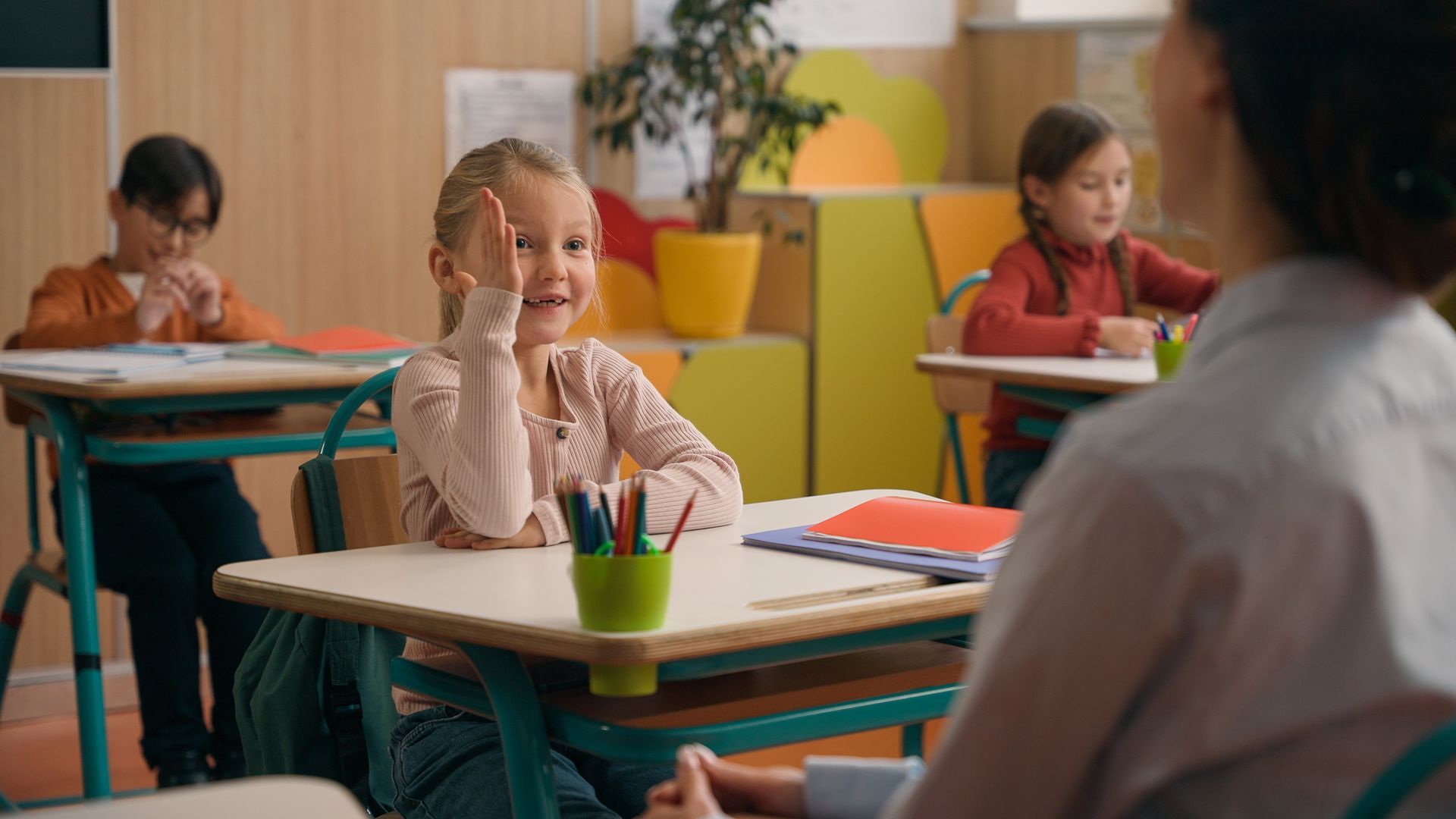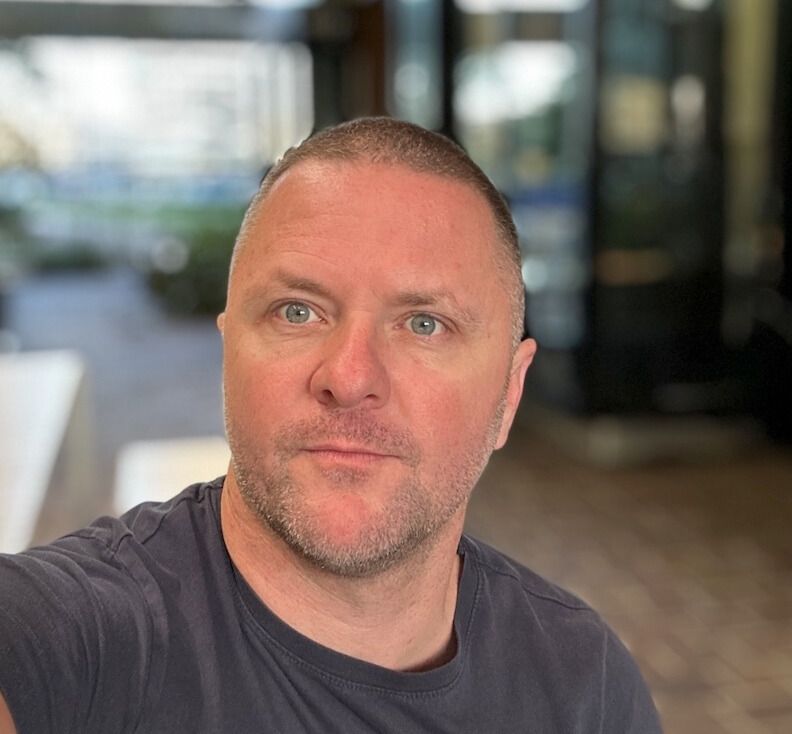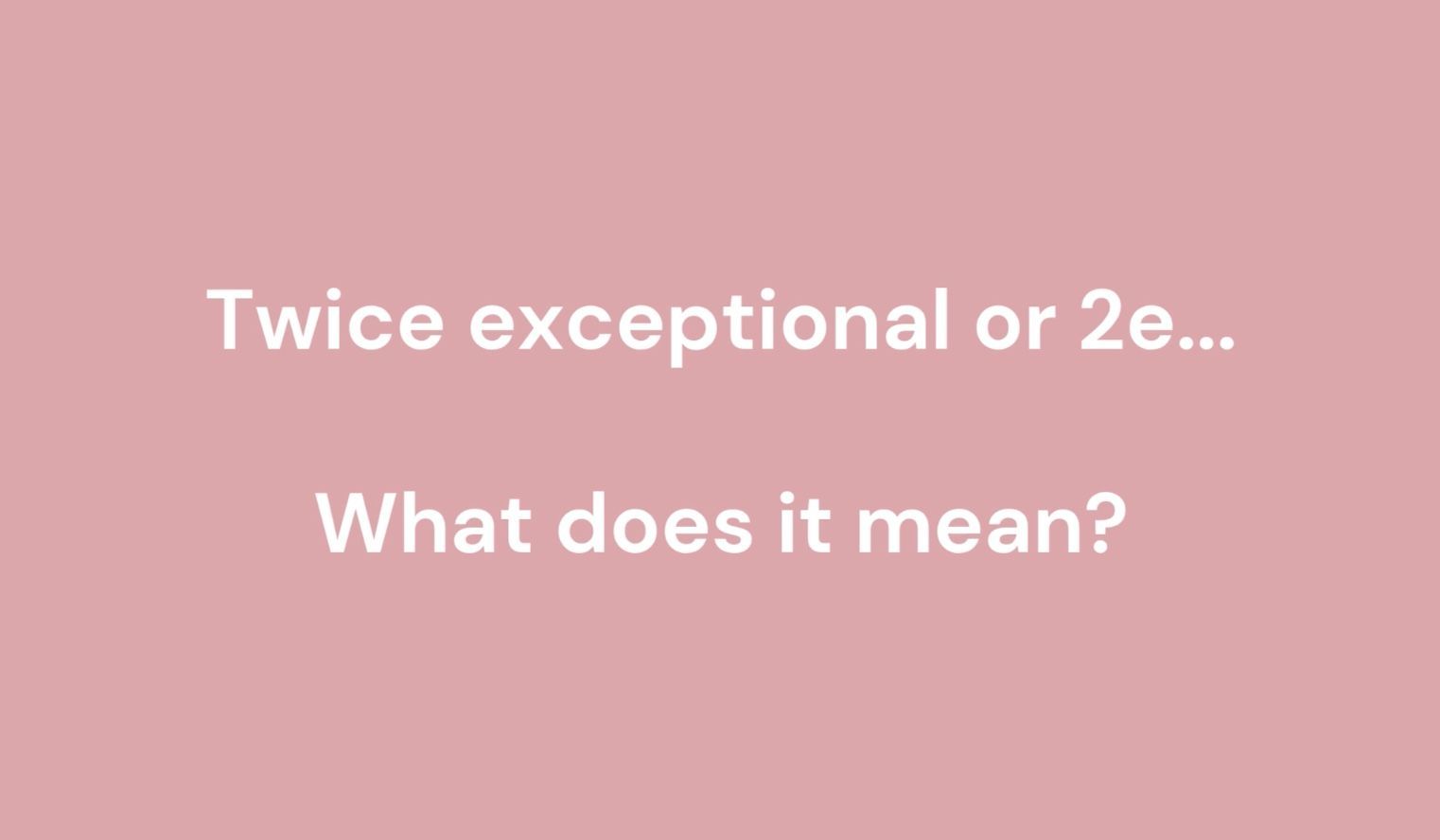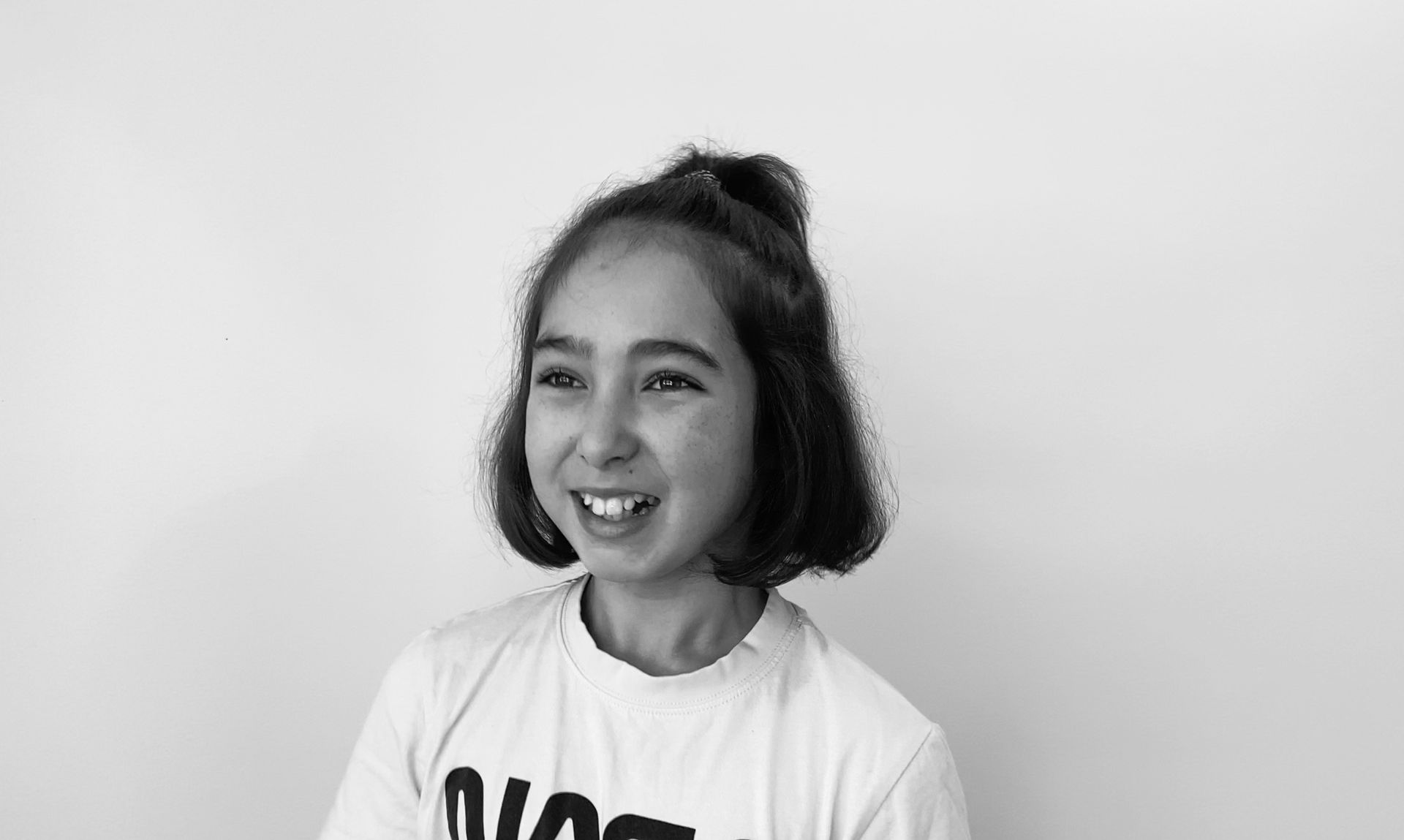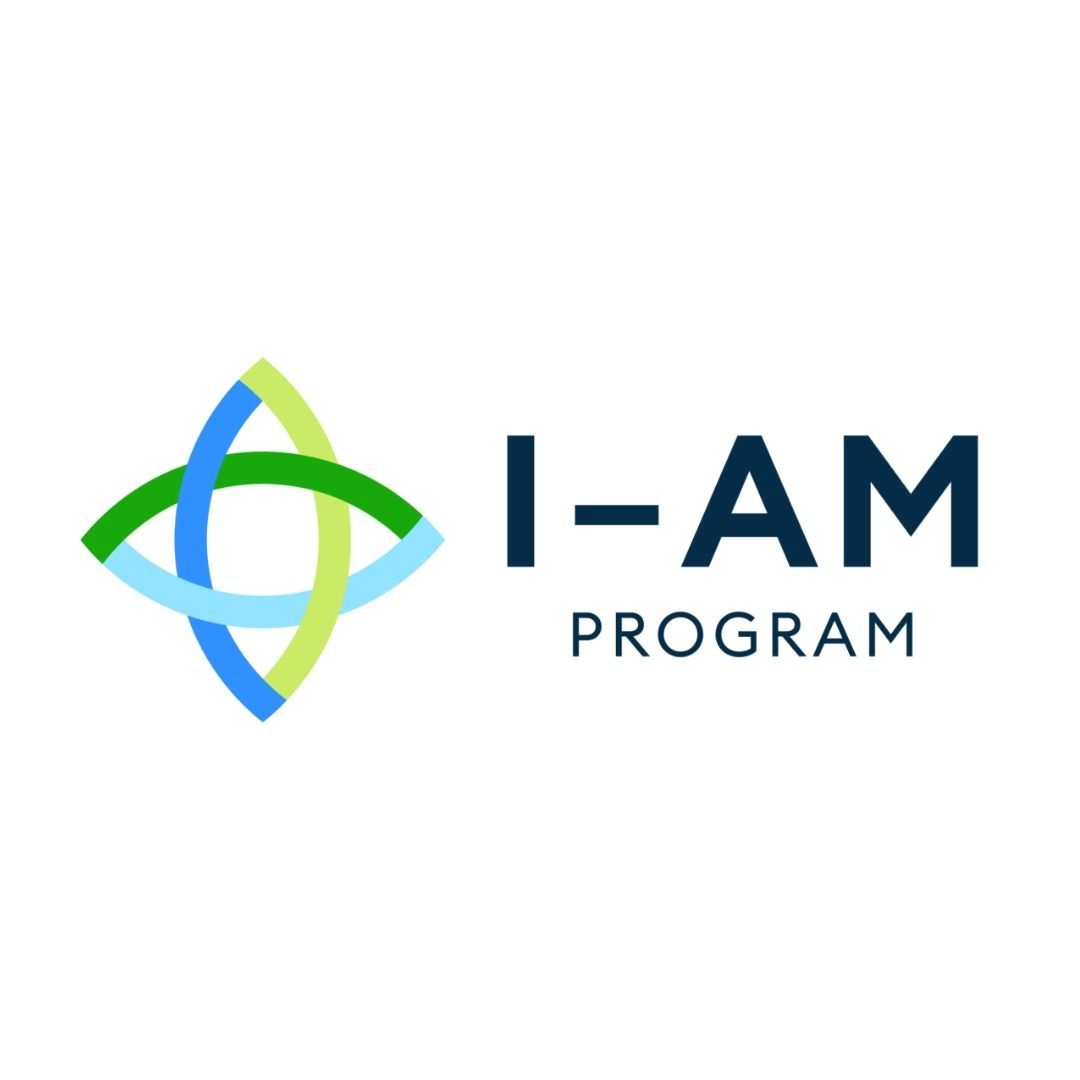How the system became muddled
A parent / gifted parenting coach's perspective
Devon Harris
When my son first started school, I was already worried. Not because he wasn’t keeping up—but because he was speeding ahead, and no one seemed to notice.
He’d just received a formal recommendation for a double-grade skip. Immediate. Necessary. But it was ignored. So I did what any concerned parent might do—I called a policy officer at the Student Excellence Unit in the Department of Education and Training. I wanted to understand the support available for kids like mine. What I found was… not what I expected.
The gifted program, I was told, didn’t begin until Grade 5. Further, the tangible parts of it were really only available to children in metropolitan areas (we lived rurally). And even then, it offered extra work to be done alongside their usual classroom load—which, for many gifted children, is already repetitive, unstimulating, and at times emotionally distressing.
Worse still, I discovered that the program had originally been designed for the top 2% of students—those identified as gifted through psychometric assessment. But under pressure from families of high-achieving children who didn’t meet the gifted criteria, the program was quietly expanded to include the top 10%, without any increase in funding—just more kids to serve. The policy officer was as exasperated as I was.
It made me wonder: do we collectively understand what giftedness is?
I always start with the caveat that giftedness doesn’t discriminate. It shows up across all genders, socioeconomic groups, ethnicities, and cultures. But it often goes unrecognised in communities that don’t have access to testing, advocacy, or visibility—and that’s a failure of our
systems, not of the children. When we treat giftedness as a privilege instead of a neurodevelopmental difference, we miss it in the very places it most needs to be seen.
Giftedness isn’t about being ahead in class. It’s not about getting the right answers quickly. It’s a brain-based difference—something you’re born with, not something you earn. You can nurture it, yes. But you can’t create it, coach it, teach it, train it, or hothouse it into being. It either is, or it isn’t.
I believe all children can become talented. Not all children are gifted. And I say that not to elevate some and diminish others—but to finally, gently, lovingly, tell the truth.
I wish we had a different word for it. Because the word “gifted” gets so tangled up in achievement, status, and access that we forget: this was never about being better. It was about being different. And different, when misunderstood, often becomes isolated.
And isolated children do not thrive.
The Core Confusion
Let's start here: Giftedness is not the same as talent.
Giftedness is a developmental difference. It shows up in the brain. It shows up in how a child processes information, senses the world, and makes meaning. It often comes with emotional intensity, development that doesn’t follow the common trajectory, and a drive for depth that isn’t easily switched off. It’s not something you create through coaching, immersion, or repetition—it’s something you’re born with.
With hindsight, I could see it in my son from the moment he was born, and many of the parents I work with come to say the same thing.
This is an undeniable element of who they are. For better and for worse.
Talent, on the other hand, is cultivated. You can practice it, refine it, and develop it over time. And I truly believe that all children—given the right environment—have the capacity to become talented in something. That’s the beauty of talent: it grows wherever it’s watered, given sunlight, and access to nutrients.
But giftedness? It isn’t earned or worked for. And it isn’t a reward for being a good student or having involved parents.
Here’s why the distinction matters: when we confuse talent with giftedness, we build programs and systems that reward polish rather than respond to wiring. We overlook the child who’s struggling emotionally or masking their abilities—because they don’t look like a “high achiever”.
And we pressure kids to perform at a level that matches someone else’s cognitive wiring, not their own. It’s not that one group is better. It’s that they have different needs. And when we try to serve both with the same tools, we fail both.
Misunderstandings That Harm Everyone
When we confuse giftedness with achievement, everyone loses.
Gifted children lose the chance to be understood for who they are—not just what they can do. High-achieving children lose the chance to thrive in environments truly tailored to their needs, without being asked to carry a label that doesn’t fit. And educators lose the clarity required to create programs that actually work.
I’ve seen this play out time and again—with my own child and with the families I support.
Gifted kids who aren't appropriately supported to achieve at their level are often left to flounder, written off as lazy, disruptive, or emotionally immature. Meanwhile, high-achieving kids who’ve been coached to shine on tests are praised, rewarded, and placed into programs that were never designed for them. And who could blame them? They’ve done what the system asked of them.
But here’s the quiet tragedy: the gifted child who can’t—or won’t—jump through the hoop on cue doesn’t get seen at all.
Gifted children are developmental anomalies. They may read like a teenager, argue like a philosopher, and meltdown like a preschooler—all in the same afternoon. They might refuse to show their work, get stuck in perfectionism, or disengage entirely when their inner world is
continually mirrored inaccurately by the environment around them. Imagine living in a funhouse mirror maze where every surface shows you a distorted reflection of yourself?
And when we confuse talent for giftedness, we build programs around output—not around cognitive experience. That means the quiet ones, the ones with deep feelings or slow handwriting, the ones who ask “why?” more than “how?” —they get passed over.
This isn’t just about it being unfair. It’s about it being harmful. Not because gifted kids deserve more, but because they often need something different—something schools are rarely equipped to offer when giftedness is reduced to test scores.
So let’s get clear. Giftedness isn’t about being better. And performance isn’t proof. We have to stop pretending we can identify giftedness through polished outputs alone—because the kids who don’t sparkle on command are the ones most in need of our attention.
The Equity Conversation—Let’s Get It Right
One of the loudest arguments against using psychometric testing to identify giftedness is that it’s “elitist” —that it privileges wealthy families who can afford assessments and coaching, while excluding children from low-income households.
As someone who was raising my child on a low income when I began this journey, I want to say clearly: that hasn’t been my experience.
There are avenues of access that many families simply don’t know exist. Mensa offers free testing in schools across Australia, runs multiple community testing days each year, and has a dedicated Gifted Children’s Fund to support families in accessing full psychometric assessments when needed. Monash University’s Krongold Clinic also provides high-quality, more affordable testing services, with payment plans.
I don’t deny that our systems are inequitable in many ways. They absolutely are. But in this case, the barrier isn’t always cost—it’s awareness and willingness.
And here’s the deeper irony: when we reject psychometric testing out of fear of elitism, we often replace it with performance-based selection—tests that can be endlessly coached for, paid for, and drilled. These selective exams often reflect opportunity more than ability.
And they’re far more vulnerable to socioeconomic bias. Psychometric testing isn’t about labelling kids or sorting them into hierarchies—it’s about understanding how a child’s mind works. It’s a diagnostic tool, not a verdict. When used wisely, it can open doors to real support.
Because when we rely only on surface performance, the gifted child who’s struggling quietly in the corner—too bored, anxious, or perfectionistic to show what they know—gets completely overlooked. And isn’t that the greater injustice?
Why You Won’t Hear Me Say Much About “Neurodivergence” or “2e”
You might have noticed that I haven’t used terms like “neurodivergent” or “twice exceptional” in this piece. That’s intentional.
While I know those words are widely used—and often with good intentions—I’ve found they don’t always tell the whole truth. In fact, they can sometimes obscure it. Many of the challenges we see in gifted kids today—meltdowns, sensitivity, inattention, sensory overload, executive function issues—are real. But that doesn’t mean they’re fixed, lifelong disorders.
Through my training in Aware Parenting, I’ve come to see many of these behaviours as responses: to environmental contaminants, to chronic stress, to unresolved trauma, and to developmental needs that have gone unmet for too long. I do believe giftedness is a
brain-based difference. But I prefer to describe it in developmental terms, not through the broader (and increasingly politicised) lens of “neurodivergence". For some families, that term is helpful. For mine, and for many of the families I work with, it isn’t.
And while I believe psychometric testing can be a powerful tool for identifying giftedness, I don’t believe children should be defined by labels. I’m more interested in what’s underneath the behaviours—the unmet needs, the emotional truth, and the context they arise from.
I’m not at all saying that diagnoses are invalid. But I am saying that many fade into the background—or become entirely manageable with far less medicalised interventions—once we create the right relational environment. One where children can release pent-up tension, feel
safe enough to express their emotions, and be truly seen for who they are—not just how they perform or behave.
That’s why I resist the idea of “twice exceptionality” as a fixed label. Because for many families I’ve worked with, the exceptionality isn’t a separate condition layered on top of giftedness—it’s a cry for help from a nervous system that hasn’t yet found its way back to balance.
When we see the whole child—not just the symptoms—we stop trying to fix them. We start listening. We start partnering.
And that changes everything.
How the System Became Muddled
When I first contacted the Student Excellence Unit, I expected clarity and support. Instead, I stumbled into a quiet policy compromise that explained so much of what wasn’t working.
The original intention of the program was clear: to meet the needs of the top 2% of children identified as gifted through psychometric testing. But over time, and under sustained pressure from families of high-achieving—but not gifted—students, the eligibility quietly expanded to include the top 10%.
This shift wasn’t loudly announced. It happened subtly. But the impact was profound.
In trying to appease everyone, the program began serving no one particularly well. It pivoted toward performance-based selection—favouring those who tested well, often due to coaching—rather than tailoring support for children with fundamentally different cognitive wiring.
And still, the program didn’t begin until Grade 5. It blatantly excluded rural families. It added more academic work, instead of offering curriculum replacement and favoured differentiated instruction at the expense of necessary grade skips. In other words, it was designed for the talented, not the gifted.
Ironically, this same program was created in response to the Victorian Parliamentary Inquiry, which found gifted children to be among the most educationally disadvantaged in the state. Yet we built a system that measures performance, not potential—and continues to sideline the very children it was supposed to help.
This isn’t just a policy issue. It’s a profound misunderstanding of what giftedness actually is—and what happens when we force children to squeeze themselves into programs that were never built with them in mind.
Toward Real Fit, Real Support
What gifted children need isn’t more. It’s not more pressure. More work. More expectation. What they need is fit.
A fit between how their brain is wired and how they are taught.
A fit between their depth of feeling and the emotional tone of the classroom.
A fit between the questions they are asking and the curriculum they’re given.
They need early recognition—not delayed intervention.
They need a curriculum that allows them to work at their own rate and pace—and replaces the repetitive, rather than piling on top of it.
They need adults who understand that boredom isn’t laziness, intensity isn’t defiance, and perfectionism isn’t ambition—it’s fear in clever disguise.
They need to be mirrored. Not just seen as “bright” but understood in the fullness of their difference. This isn’t about gatekeeping. It’s about tailoring. It’s about recognising that high-performing children and gifted children often need different kinds of environments to
thrive—and pretending otherwise does a disservice to both.
In a recent blog post, I echoed the sentiment that gifted children are canaries in the coal mine—showing the earliest, most pronounced signs of strain in an education system that, in truth, isn’t serving any child particularly well. Their intense responses aren’t the problem; they’re signals. And when we learn to listen, we gain insights that can uplift not just gifted children, but the entire ecosystem they’re part of.
Imagine a world where children are met for who they are—not how they perform.
Where support isn’t earned through output but offered in recognition of wiring, sensitivity, and possibility. Where every child—gifted, talented, or still uncovering their strengths—feels their inner world reflected, respected, and responded to.
We don’t have to settle for programs that miss the mark. We can build something better. It starts with telling the truth—about what giftedness really is, what it’s not, and why getting it right matters more than ever.
While some families will choose to remain within the school system and advocate from within, others may find their children thrive best outside it altogether. Gifted-specific micro schools, parent-led learning hubs, and flexible hybrid models are no longer fringe—they’re fast becoming the future for families seeking real fit.
For many of the parents I work with, the first question we ask isn’t “How do we fix the school?” It’s “Do we actually need to stay?”
Let’s Begin Telling the Truth—Together
If there’s one thing I want you to take from this, it’s this: Giftedness is not an advantage. It’s a difference. And when misunderstood, it becomes a burden. When we confuse talent with giftedness, when we chase performance instead of understanding, when we design programs around output instead of fit—we don’t just fail the gifted kids. We fail all of them.
But it doesn’t have to be this way.
We can start designing support that actually supports. Curriculum that actually connects. Relationships that reflect, not just reward. We can stop asking kids to adapt to systems that don’t see them, and start building environments that meet them—emotionally, intellectually, and developmentally.
The path forward doesn’t require a revolution. It requires a shift in lens.
.
If you’re a parent, start by telling your child the truth about who they are. Reflect them. Don’t wait for an external system to do it.
If you’re an educator, learn to look beyond output. Ask better questions. Create space.
If you’re a policymaker, revisit the Inquiry that told you these children were already being left behind.
And if you’re not sure where to begin—begin here: Believe that giftedness is real, and that misunderstanding it is doing real harm.
Let’s stop debating whether a child is gifted enough to deserve support. Let’s start building a world where their differences are seen early, honoured wisely, and responded to with love and courage.
That world is possible and it starts with one simple shift: Seeing giftedness for what it truly is.
Devon Harris is a child advocate, parent of a gifted youngster and a coach for parents with gifted children. She holds a degree in Child and Adolescent Development and worked directly with young people for over 2 decades before realising the earliest and most powerful point of intervention was working with their parents. Devon currently offers 1:1 and small group coaching packages for parents with gifted kids. She continues to be immersed in the parenting journey with her radically accelerated 11 year old, whilst writing for her blog and swimming in Lake Daylesford most mornings, regardless of the season.
Disclaimer: The views and opinions expressed in this blog are those of the author and do not necessarily reflect the official policy or position of the AAEGT.
Share this resource
Resources

